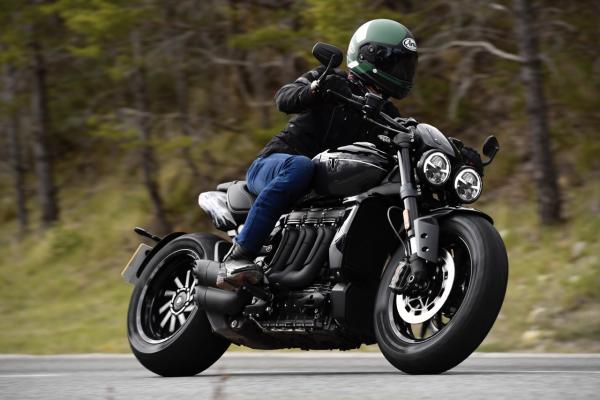
UK ministers are set to finally decide on the endpoint for petrol-powered motorcycle sales, with industry sources pointing to a 2040 date for the phase-out of ‘L3’ and up models.
It’s also suspected that the sale of new smaller capacity L1 motorcycles and mopeds will be phased out by 2030. L1 motorcycles are bikes with less than 50cc capacity and with a top speed not exceeding 27mph. The phasing out of L1 motorcycles is a little more realistic, with already significant numbers of lightweight electric motorcycles being sold in the UK, with the Telegraph reporting that they equated for around half of all UK moped sales in 2023. That can’t be said for the sale of new L3 and up electric motorcycles, with larger capacity electric motorcycles accounting for just 3.5 per cent of the UK market last year.
The Maeving RM1S is one of those new electric bikes that is selling quite well
The government has tried to make the switch to battery-powered biking more attractive, by extending the electric vehicle grant (£500 off for bikes costing £10,000 or less) although a still limited charging network and the low range of electric bikes are still too off-putting for most.
The Telegraph also reports that a government spokesperson was remaining tight-lipped on the exact date, saying “While we are committed to transitioning away from petrol and diesel engines, no decision has been taken on the end sale for new motorbikes and mopeds, we continue to engage with the industry on the matter”.
Speaking exclusively to Visordown on the phasing out of petrol-powered motorcycles in 2023, MCIA Chief Executive Tony Campbell said:
“We are pushing the Government to think beyond just electrification as this should not be pre-determined by their policy. We need the Government to be more open-minded about net carbon fuels and to allow technology and innovation to find the right solution, not any binary policies that are easy for them to legislate.
“It is critical the UK does not fly solo when it comes to regulation in our sector, whilst the Automotive sector would prefer alignment with Europe, they accepted the 2030 date as the UK market is two million units per year and therefore not a problem (and also helps them gear up for the EU 2035 date). The automotives [manufacturers] appear not happy, once the Zero Emission Vehicle (ZEV) mandate is published it won’t make any difference to them. What you are seeing now is pure politics.
“Our sector is circa 110 [thousand] to 120,000 units per year, if we are out of kilter with the EU; model ranges could potentially be reduced, or some manufacturers may not choose to be in the UK until other major markets align again, this is a big risk.”
The report from the Telegraph also highlights the disparity between the transport-related carbon emissions produced by four-wheeled vehicles and those produced by two-wheelers. It reports that in 2021 cars and taxis produced nearly 60 per cent of the UK’s transport-related carbon emissions, while motorcycles and scooters represent just 0.5 per cent of carbon emissions.

